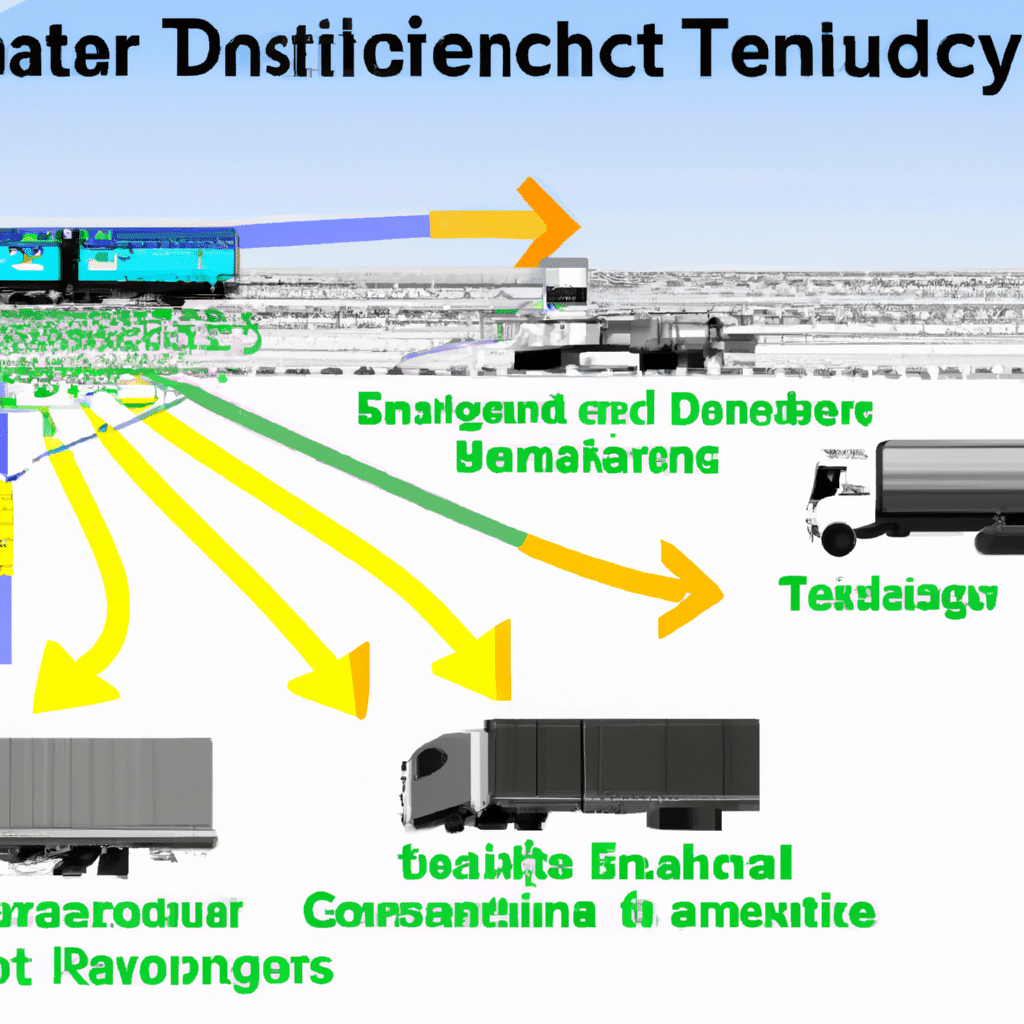The Impact of IoT on the Transportation and Logistics Sector
The integration of Internet of Things (IoT) in the transportation and logistics sector has revolutionized the way goods are moved across the world. IoT has enabled the automation of several key processes in the sector, leading to increased efficiency, reduced costs, and improved customer experience. In this article, we will explore the impact of IoT on the transportation and logistics sector.

The Basics of IoT in Transportation and Logistics
IoT is a network of connected devices that can communicate with each other and transmit data over the internet. In the transportation and logistics sector, IoT devices are used to track and monitor goods, vehicles, and equipment. These devices can provide real-time information on the status and location of goods, helping logistics companies to optimize their operations.
IoT in Fleet Management
One of the key areas where IoT has had a significant impact is in fleet management. IoT devices can be installed in vehicles, providing real-time information on their location, speed, and performance. This data can be used to optimize routes, reduce fuel consumption, and improve driver safety. IoT devices can also be used to monitor the condition of vehicles, providing early warning of maintenance issues.
IoT in Supply Chain Management
Another area where IoT has had a significant impact is in supply chain management. IoT devices can be used to track goods as they move through the supply chain, providing real-time information on their location and condition. This data can be used to optimize the supply chain, reducing delays and improving customer experience. IoT devices can also be used to monitor the condition of goods, providing early warning of damage or spoilage.
IoT in Warehouse Management
IoT devices can also be used to optimize warehouse management. Sensors can be installed in warehouses to monitor the location and condition of goods. This data can be used to optimize the layout of the warehouse, reducing the time and effort required to locate goods. IoT devices can also be used to monitor the condition of goods in the warehouse, providing early warning of damage or spoilage.
Benefits of IoT in Transportation and Logistics
The integration of IoT in the transportation and logistics sector has several benefits, including:
Increased Efficiency
IoT devices can provide real-time information on the status and location of goods, vehicles, and equipment, enabling logistics companies to optimize their operations. This leads to increased efficiency and reduced costs.
Improved Customer Experience
IoT devices can provide customers with real-time information on the status and location of their goods, improving customer experience and satisfaction.
Reduced Costs
By optimizing operations, IoT devices can help logistics companies to reduce costs, leading to higher profits.
Improved Safety
IoT devices can be used to monitor the condition of vehicles and equipment, providing early warning of maintenance issues and reducing the risk of accidents.
Challenges of IoT in Transportation and Logistics
While there are many benefits to the integration of IoT in the transportation and logistics sector, there are also several challenges that need to be addressed. These challenges include:
Data Security
IoT devices transmit sensitive data over the internet, making them vulnerable to cyber attacks. Logistics companies need to implement robust security measures to ensure the safety of their data.
Interoperability
There are many different types of IoT devices available, and they may not be compatible with each other. Logistics companies need to ensure that their devices are interoperable to avoid compatibility issues.
Cost
The cost of implementing IoT devices can be high, particularly for small companies. Logistics companies need to carefully consider the cost-benefit ratio before investing in IoT technology.
Conclusion
The integration of IoT in the transportation and logistics sector has revolutionized the way goods are moved across the world. IoT devices can provide real-time information on the status and location of goods, vehicles, and equipment, enabling logistics companies to optimize their operations. While there are challenges that need to be addressed, the benefits of IoT in the transportation and logistics sector are clear. By embracing this technology, logistics companies can improve efficiency, reduce costs, and improve customer experience.












